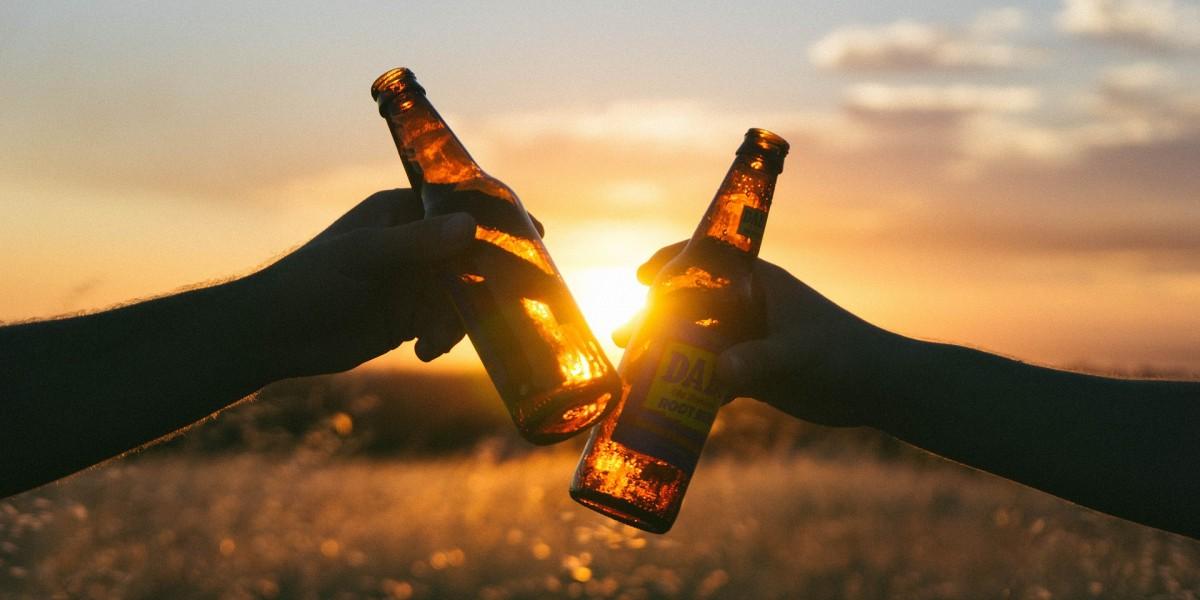
The Effects of Alcohol on Fat Loss and Muscle Building
Let’s have a look at the effects of alcohol consumption on Testosterone, Growth Hormone, Metabolism and Weight gain.
Before we go ahead, I want to make two things perfectly clear. I am a teetotaler who has never had alcohol in my life and I don’t encourage anyone to consume alcohol.
Alcohol lowers testosterone (male sex hormone) and increases estrogen (female sex hormone).
– The majority of studies conducted in the past 25 years have found that alcohol inhibits testosterone secretion. Healthy normal men consuming moderate amounts of alcoholic drink, experience a 20% drop in their serum levels of testosterone.
– Testosterone helps increase muscle mass and strength, reduce fat, stimulate sperm production, empower sex drive and maintain bone strength. Testosterone is the sex hormone that is responsible for making you a man.
– Gynecomastia (male breast enlargement) is triggered by a decrease in the amount of the hormone testosterone compared with estrogen.
– Always remember, alcohol provokes the sexual desire, but it takes away the performance.
Alcohol interferes with muscle growth as well as slows your post-workout recovery process.
– Alcohol negatively affects protein synthesis, which means overall muscle growth reduction. Protein synthesis is the process where amino acids are joined together to form complete proteins.
– Alcohol tends to disrupt natural sleep rhythms so it decreases the amount of growth hormone released. Growth hormone is the substance in the body that plays a very large role when it comes to building muscle, stimulating other cell growth and promoting optimal bone growth.
– Alcohol depletes the body of vitamins and minerals. Alcohol consumption causes vitamins A, C, the B’s, calcium, zinc and phosphorus to all be drained at rapid rates. Vitamins and minerals keep every little process in your body functioning properly and many of these processes involve muscle growth and maintenance.
– Alcoholic skeletal muscle myopathy is one unfortunate side-effect of alcohol which causes muscle loss.
– It is also commonly claimed that alcohol consumption impairs strength and interferes with the body’s ability to repair muscle damage.
– Water plays an absolutely crucial role in the muscle-building process. The muscles alone are comprised of 70% water and alcohol causes severe dehydration. The kidneys must filter very large amounts of water in order to break down the alcohol, and this can result in severe dehydration within the body.
Alcohol consumption deteriorates on physical performance.
– Regular alcohol consumption impairs nutrient absorption. Your body puts metabolizing alcohol at the top of its list of things to do once it enters the body, which means the absorption of vitamins and minerals from other foods slows dramatically. Such interference of nutrient breakdown and absorption impair the physical performance.
– Even though you may feel a “high” after several cocktails, the truth is that your reaction time, accuracy, balance, hand-eye coordination and endurance all decrease dramatically.
– Alcohol is a diuretic that may result in dehydration. Being even slightly dehydrated as little as 2% of normal fluid loss takes a toll on energy levels.
Alcohol contributes to weight gain.
– The body can’t store alcohol, so it metabolizes it right away. Since the alcohol is the first fuel to be burned as energy in your system, your body won’t metabolize other fats and carbs as efficiently. Ultimately, the rest of the calories in your system will get stored as fat as they are going unused rather than being burned as fuel.
– Alcohol is empty calories. It doesn’t have any nutrients, but does have a caloric value of 7 calories per gram. Research says that people who consider themselves average wine drinkers consume an excess of 2,000 calories per month. A couple of beers can easily add more than 300 calories to your diet, the equivalent of 30 minutes of jogging for a 70kg person.
– Alcohol actually stimulates the appetite. The hunger-increasing hormone, known as gelanin, is produced when alcohol is consumed. So when you are drink, you desire to eat high-fat foods and salty foods.
– Alcohol stimulates insulin production when consumed. Just like sugar, this can lead to increased fat storage.
Alcohol consumption = Mass insulin.
Mass insulin = Mass fat storage.
Sourced from Stay Wow
